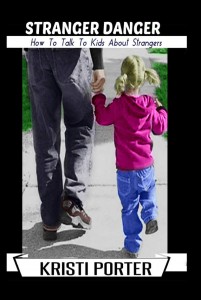 Dragonfly Arts Magazine seeks submissions of prose, poetry, art, and photography in the theme of reflections on sexual, domestic, and dating violence, as well as healthy relationships and self-renewal.
Dragonfly Arts Magazine seeks submissions of prose, poetry, art, and photography in the theme of reflections on sexual, domestic, and dating violence, as well as healthy relationships and self-renewal.
Entry Fee: NONE
Deadline: March 3, 2014
Prizes: Publication
Visit the website for more information.
Indies Unlimited is pleased to provide this information as a public service. We are not affiliated with, nor do we endorse any specific events, conferences, workshops, or programs. Persons interested in participating are responsible for performing their own due diligence and research.

 Stranger Danger – How to Talk to Kids About Strangers is a guide to help parents of children ages 3-8 teach kids about strangers in a fun, interactive, and age appropriate way – without scaring them.
Stranger Danger – How to Talk to Kids About Strangers is a guide to help parents of children ages 3-8 teach kids about strangers in a fun, interactive, and age appropriate way – without scaring them.